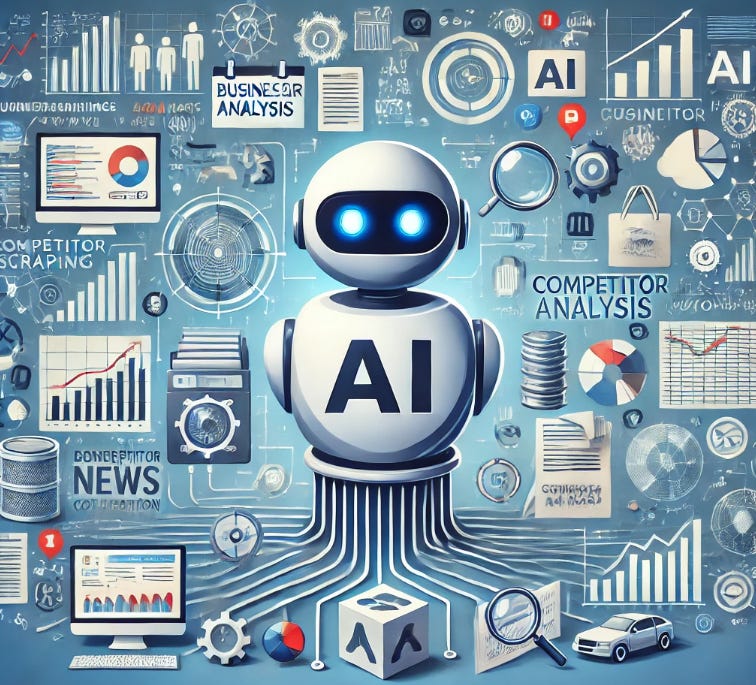Scaling Your Experience with AI: How Scraping Enhances the Power of ChatGPT and Gemini
When ChatGPT first entered the market, many of us saw it as a game-changer. The concept was simple: why would we need search engines, scraping, or additional datasets when we could just ask ChatGPT for instant answers? In some ways, this is true—models like ChatGPT and Google Gemini can provide quick insights across a wide range of topics. However, as I and many others quickly discovered, there are critical limitations to relying on AI alone, especially when it comes to time-sensitive or highly specific information. This is where scraping your own data becomes essential to scaling and improving your AI experience.
The Early Days: Overreliance on AI
At first, it felt like we didn’t need search engines or specialized tools anymore. ChatGPT could generate anything—summaries, opinions, technical guides—but soon it became clear that this wasn’t ideal for every situation.
While ChatGPT works well for general inquiries, we all noticed it struggled with time-sensitive data or industry-specific questions. For instance, if you needed the latest trends in your sector or up-to-date studies, the model couldn’t help because it wasn’t updated in real-time. Many of you likely have similar experiences. The reality is that models like ChatGPT are trained on data available up until a certain point and don’t always have access to the freshest information. Additionally, there are times when you need to analyze an isolated dataset specific to your needs.
This realization led me to a key insight: for truly effective AI-driven analysis, you need to provide the right, up-to-date data to the model, rather than expecting it to work with incomplete or outdated information.
The Importance of Scraping: Feeding Relevant Data to AI
The turning point came when I realized that if we wanted more relevant answers from AI, we had to provide the model with accurate, current data. One of the best ways to do this is by scraping your own data from selected sources.
Scraping is the process of collecting specific data from websites or databases and organizing it in a way that AI models like ChatGPT or Gemini can analyze. Whether you're working with competitor pricing, customer reviews, product data, or social media trends, scraping allows you to gather real-time, relevant information. This makes the AI’s output much more valuable, as it is tailored to your needs and controlled by you.
For example, instead of asking ChatGPT a generic question like "What are the latest e-commerce trends?" and receiving a broad or outdated answer, you could scrape the latest data from e-commerce platforms, industry reports, and news sources. You then feed this dataset into ChatGPT or Gemini, allowing the model to analyze those specific trends with precision.
Why Scraping Matters Even More Today
Scraping has become even more critical as more content owners request their data to be removed from AI training sets. In recent years, several companies, websites, and individuals have “asked” AI developers to exclude their content from datasets. As time goes on, the data that was once available for models like ChatGPT may no longer be accessible.
If you're relying solely on a language model to provide you with insights, you could end up with limited or skewed results because the data you expect might not be in the training set. By scraping and using your own data, you ensure you're working with relevant, accurate information that aligns with your needs.
Enhancing AI with Scraping: A Game-Changer
You can easily experiment with this approach to see the difference for yourself. When you provide AI models with your own controlled datasets, the results are vastly more insightful. For instance, using scraping to collect real-time financial information or news articles and then feeding that data into ChatGPT can give you far more actionable and precise advice. You’ll be analyzing exactly the data you’ve selected from the exact time frame you need.
This combination of scraping and AI is particularly useful for tasks like competitor analysis, customer feedback tracking, or monitoring product performance. Having fresh, tailored data at your disposal makes the AI’s output far more reliable, helping you make informed decisions more confidently.
The Future of AI and Data Control
As AI evolves, it's clear that relying solely on generic or outdated datasets won’t be enough. We must be proactive in providing the data we want AI to analyze. Scraping plays a critical role in this, allowing us to gather the most accurate and relevant data for decision-making.
In conclusion, while tools like ChatGPT and Gemini are powerful, their real potential is unlocked when you provide them with the right data to work with. Automation and AI are incredible at analyzing information, but they are only as good as the data they process. By scraping and feeding them with fresh, relevant data, you take control and get far more out of these models—whether for market research, competitor analysis, or making strategic business decisions.
That’s why we’ve seen an increased demand for Hexomatic’s scraping automations. I’d love to hear your thoughts and questions about how you can leverage scraping for your business. Feel free to book a demo call for more insights.


